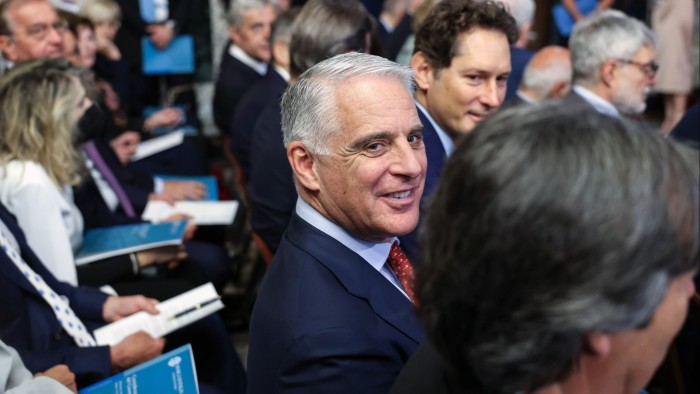Unlock the Editor’s Digest for free
Roula Khalaf, Editor of the FT, selects her favourite stories in this weekly newsletter.
UniCredit was already playing a complex chess game, with its bid for Italy’s Banco BPM and interest in Germany’s Commerzbank. Now that French rival Crédit Agricole has raised its stake in BPM to 15 per cent, acquisitive chief executive Andrea Orcel has an even bigger challenge. He can still get his hands on the €11.6bn bank — but will have to pay up to do so.
Crédit Agricole isn’t interested in countering UniCredit’s bid outright. And a 15 per cent stake, comprising its existing 9.9 per cent plus a further 5 per cent amassed through derivatives, does not constitute a blocking minority. Yet it still puts the French bank in a better position to protect its own interests — and potentially help BPM extract more value out of UniCredit.
Usefully for BPM, which has rejected UniCredit’s initial bid, Crédit Agricole may be supportive of the lender’s standalone strategy — whether that entails remaining a mid-sized bank or potentially buying Italy’s Monte dei Paschi di Siena, in which it has a stake. Crédit Agricole has consumer finance and insurance joint ventures with BPM, as Barclays analyst Flora Bocahut points out. Safeguarding such agreements, or even extending them to MPS, would be beneficial.
This is not a bad position from which to explore negotiations with UniCredit. On this front, too, there are lots of things Crédit Agricole might want to leverage its bargaining chip for. As well as its partnerships with BPM, the French bank sells investment products from its subsidiary Amundi through UniCredit. This agreement expires in 2027, but Crédit Agricole may want to prolong it.
Whatever Crédit Agricole might want by way of business arrangements, as a shareholder it should also want a better offer price from UniCredit. When UniCredit launched its all-share bid at the end of November, it was broadly in line with where BPM was trading. The smaller bank’s outperformance over the past two weeks means its shares now trade at a 12 per cent premium to the offer price.
While Crédit Agricole’s move to bulk up suggests UniCredit has a tougher negotiation on its hands, there may be a silver lining too. The Italian government — which quite liked the idea of BPM buying MPS to create a third national bank — has blown negative rhetoric over Orcel’s disruptive bid. With Crédit Agricole now set to wield greater influence on any BPM-led entity, politicians may find it expedient to soften their stance.
Read the full article here

